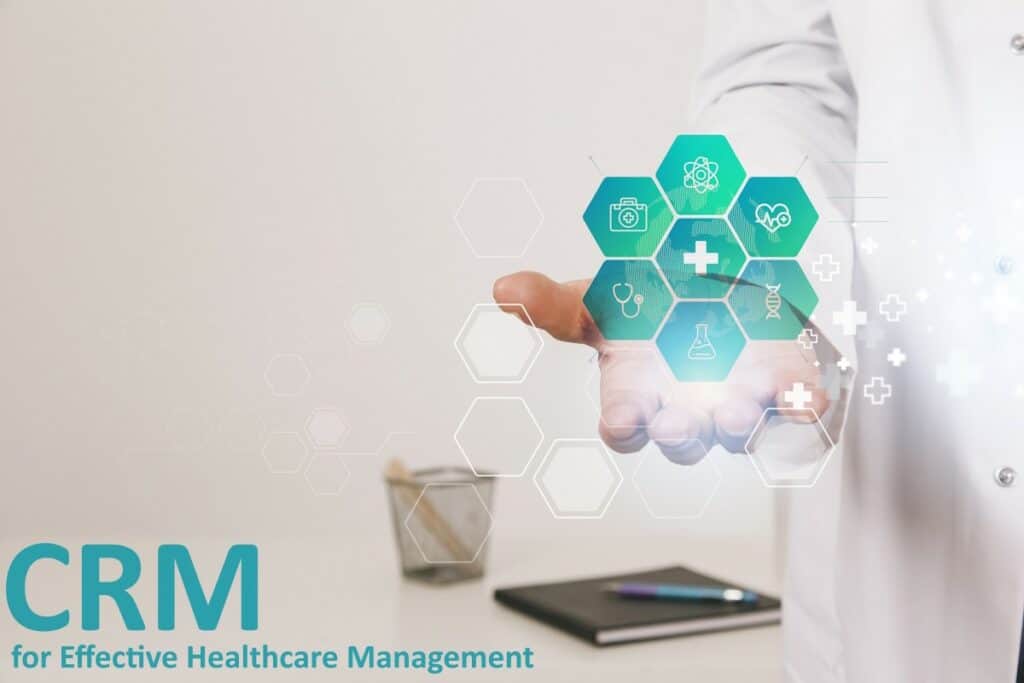The role of Customer Relationship Management (CRM) within the healthcare sector cannot be understated. This blog aims to provide a comprehensive overview of the importance of CRM in healthcare, its key features, benefits, implementation challenges, and how to overcome them, underpinned by real-world case studies.
CRM, within a healthcare context, is a management approach that focuses on building relationships with patients to improve care delivery. It plays a pivotal role in healthcare management by enhancing communication and collaboration among healthcare providers and patients.
Why CRM is Essential in Healthcare?
CRM is integral to elevating the patient experience, streamlining workflow, and managing data more efficiently. It allows healthcare providers to customize patient interactions, ensuring a smoother, more personalized patient journey.
Key Benefits of Implementing CRM in Healthcare
- Personalized Patient Care: CRM allows healthcare providers to tailor interactions to the specific needs and preferences of each patient, enhancing patient satisfaction and engagement.
- Efficient Data Management: With CRM, healthcare institutions can effectively manage and analyze patient data, gaining insights that can drive improvements in care delivery.
- Streamlined Workflow: CRM tools automate many routine tasks, boosting efficiency and allowing healthcare professionals to spend more time on patient care.
- Enhanced Communication: CRM facilitates seamless communication between healthcare providers and patients, improving collaboration and care coordination.
- Improved Patient Retention: By enhancing the patient experience, CRM can increase patient loyalty and retention, contributing to the long-term success of healthcare providers.
Key Features of CRM in Healthcare
Notable features of CRM in healthcare include patient profiling, appointment scheduling, and data analytics with reporting capabilities. These features enable healthcare providers to better understand and meet the needs of their patients.
- Proactive Health Management: CRM systems can help predict potential health issues based on patient history and trends, allowing healthcare providers to take proactive measures.
- Integration Capabilities: CRM platforms can integrate with other systems like EHRs, enhancing interoperability and data sharing across platforms.
- Marketing Automation: CRM enables targeted healthcare marketing, allowing providers to reach out to patients with relevant health programs and initiatives.
- Privacy and Security: Advanced CRM solutions offer robust security features, ensuring the privacy and safety of sensitive patient data.
- Telemedicine Support: With the rise of remote healthcare, CRM systems can support virtual appointments, improving accessibility for patients.
Key Challenge of Implementing CRM in Healthcare
Implementing a CRM system in healthcare can be an intricate process, marked by several potential challenges:
- Data Integration Issues: The merging of data from various sources into the CRM system can be complex and time-consuming.
- User Adoption: Staff may resist using the new system due to unfamiliarity or perceived complexity, affecting the efficiency of operations.
- Data Security Concerns: The sensitive nature of medical records necessitates robust security measures to prevent data breaches.
- Cost of Implementation: The initial expense of CRM software, along with ongoing costs for updates and maintenance, can be significant.
Case Study: Success Stories of CRM Implementation in Healthcare
There exist numerous success stories of CRM implementation in healthcare, where facilities have seen significant improvements in service delivery and patient satisfaction, validating the power of CRM.
Johns Hopkins Medicine
Johns Hopkins Medicine, a renowned name in the healthcare sector, successfully implemented a CRM system that streamlined their communication with patients. It allowed the organization to automate appointment reminders, reducing missed appointments. The CRM also facilitated personalized health programs, resulting in improved patient engagement and satisfaction.
The Future of CRM in Healthcare
The future of CRM in healthcare holds exciting prospects with advancements in technology, such as AI and machine learning, set to revolutionize how healthcare providers interact with their patients.
- Patient-Centric Approach: CRM tools allow for a better understanding of patient needs and preferences, ensuring a personalized approach to patient care.
- Streamlined Administrative Tasks: Through automation of tasks such as appointment scheduling, CRM systems reduce administrative load, allowing healthcare providers to focus on patient care.
- Effective Resource Allocation: CRM software provides insights on resource usage, aiding in efficient resource allocation and cost reduction.
- Improved Data Management: CRM systems centralize patient data, facilitating easy access and efficient management of patient information.
- Enhanced Communication: CRM tools enhance communication between healthcare providers and their patients, improving patient engagement and satisfaction.
Conclusion
Bearing in mind the vast potential and multifold advantages of utilizing CRM for Healthcare, we can conclude that it is an influential tool for elevating patient satisfaction. The implementation of CRM systems in healthcare establishments is a tactical move toward refining operations, augmenting patient care, and driving profitability. With each technological progression, CRM for Healthcare is set to evolve and become more intricate, proving itself indispensable for delivering personalized, high-quality healthcare. To remain ahead in this dynamic landscape, healthcare facilities should prioritize exploring and integrating CRM solutions today.
